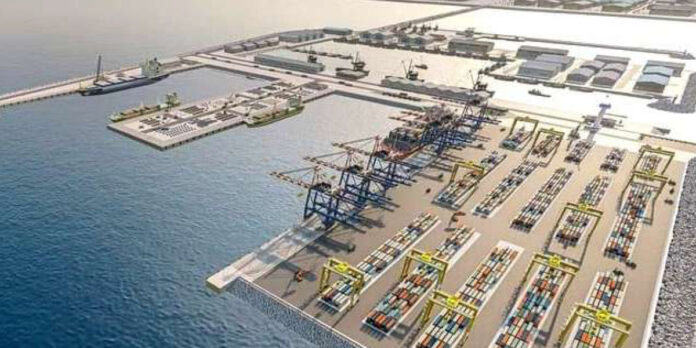
Morocco is steadily advancing its Atlantic ambitions with a series of major port development projects, all driven by the strategic vision of King Mohammed VI. The latest sign of this momentum caught the attention of the British business outlet International Business Times (IBT), which recently highlighted the significance of new infrastructure inaugurations in Casablanca.
In a feature article, IBT described the expansion of the Casablanca port complex as a key milestone in Morocco’s broader Atlantic strategy. This move, they argue, positions the country as a pivotal player in both trade and maritime security between Europe and Africa. The publication, aimed primarily at UK business leaders, framed the Casablanca project as a critical part of the King’s vision to turn Morocco into a regional logistics powerhouse.
The article’s author, Richard Dickenson—an entrepreneur with experience across Africa and a focus on green energy—emphasized the regional impact of the development. He suggested that the growing port infrastructure underscores Morocco’s transformation into a central maritime hub. With the African Continental Free Trade Area (AfCFTA) opening up new commercial corridors, Morocco aims to draw increased investment, trade flows, and tourism by reinforcing its coastal infrastructure.
According to IBT, the Casablanca expansion is not an isolated effort. It fits within a broader national program to modernize Morocco’s port systems, building on previous developments in strategic locations such as Tanger-Med, Nador West Med, and Dakhla Atlantique. This coordinated strategy reflects a long-term plan to integrate Morocco’s port network into a secure, reliable, and commercially efficient logistics framework.
At a time when global supply chains face ongoing disruption, Morocco is standing out by prioritizing predictability and resilience. IBT sees the country’s approach as a potential model for strengthening economic links—not only with Africa and Europe but also with the United Kingdom. This angle is particularly relevant as Britain looks to deepen trade ties post-Brexit.
The report also highlighted the historic maritime connection between the UK and Morocco, citing the Royal Navy’s longstanding cooperation with the North African kingdom. It pointed to growing interest from both London and the European Union in building more diverse and forward-looking partnerships in the region.
British companies specializing in sustainable shipping and advanced logistics technologies could find new opportunities in Morocco’s expanding maritime sector. For IBT, the rise of the Casablanca port complex marks more than just infrastructure development—it represents the foundation for a next-generation economic partnership rooted in tangible projects and mutual interests.




